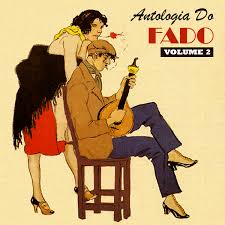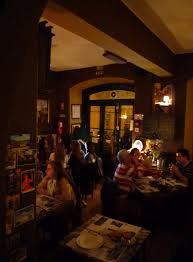“Just you wait!” this
British-Indian friend of mine had said, rubbing his hands with glee, sometime
after I had decided to go to Lisbon. “This love that you have for Portugal will
disappear in some time; just like it did for us when we first went to England.
All the romance will wash away, and you will dislike it so much!” He was right,
this British-Indian; this starry-eyed love for Portugal, that so many Goans
imbibe, almost with their mothers’ milk, did wash away. In its stead however,
grew a different, perhaps more mature kind of affection. A sentiment like that
born from a long marriage; we suffer a little, roll our eyes a lot, but at the
end of it all, there is a desire for the object of our love, a passion for one
we know so intimately. A love that burns not like the mercurial flames of young
passion, but smolders like live coal, ever ready to burst into flame.

It was this kind of love, then,
that burst into flame, not unlike that which burst in the heart of every other
Portuguese friend, when we viewed
Anthony Bourdain’s No Reservations featuring Lisbon, our very own, beautiful city of light. Before we move on, we must place
this episode in proper context. For a certain segment of food and travel
aficionados Anthony Bourdain is God. He travels to the most exotic of locations,
or exoticises the most banal of locations, discovering and creating culinary
adventures, as he tries out local foods, from the barely braised rectum of a
warthog in Namibia, to Spam in Hawaii. Added to these travels, is his
presentation style. This granddaddy speaks about food and the whole business
around it, like a young jock would talk about sex. This man oozes oomph, and
you lap everything he lays out before you, and then you lie slavering at his
feet, and beg for some more.

All too often, one watches
Bourdain in locations one doesn’t know, but this time round, he was right here,
and believe you me, there could not have been a slicker presentation of the
city. Running through the length of the forty-five minute program like a cord
that strings a set of pearls, was the music from the Portuguese duo band
Dead Combo. Dark at times, unmistakably contemporary, and without doubt also
something that could only have been midwifed by older forms of Portuguese
music, the music was perhaps what brought the whole show together (forgive me
Bourdain, but I still love you). It was a welcome break from Fado, something we
all love, and a musical genre that was definitely featured, but for the love of
God, there is a Lisbon beyond Fado and Dead Combo’s music captured that complex
Lisboeta soul perfectly. And that soul is so, so, sexy!

Indeed, if there is one thing
that Bourdain probably got wrong, was the presentation of Fado, where once more
we were treated to these silly old clichés about the genre. About Fado being
about the Portuguese propensity for saudade, wrongly interpreted as nostalgia
for the past, and testifying to the Portuguese being a sentimental lot. Oddly
enough, or perhaps as is the case with most marginalized peoples, because they
didn’t want to contradict the all-knowing American, the Portuguese on the show
played along with the whole one-sided interpretation.
 |
| Taberna Ideal |
As is often the case with
Bourdain, there was no sissying about solely in fancy restaurants. On the
contrary, the man did the entire gamut, from lunching with a fisherman and his
wife (the principal feature of the menu, the to-die-for rice with octopus), to
the simple no-nonsense pork-steak sandwich at a somewhat popular
cervejaria (beer-house), to the fancy not
so ‘straight ahead meal’ full of ‘sauce and garnish’ meals at more upmarket
Lisbon restaurants run by new-ages chefs like
José Avilez,
HenriqueSa Pessoa and Ljubomir Stanisic. If you are asking me for my opinion, and I’ll
treat you to it even if you aren’t, what I think is one of the finest places to
eat sexed-up traditional Portuguese food up, the two Ideal restaurants, weren’t
really featured. But then, you can’t win every time can you? And what is the
voice of one anonymous Goan when pitted against Portuguese and Americans of
renown?

The other guest that featured on
the show was the economic crisis that Portugal is currently suffering. The
varying Portuguese opinions of the
crise
(crisis) came through on the show, if it was the pessimistic
hands-up-in-the-air attitude by the famed Portuguese author António
Lobo Antunes; as something to be laughed at, in the opinion of comedian Zé
Diogo Quintela; or the vaguely rightist opinion by the fadista Carminho who
suggested seeing it as an opportunity! What most agreed on however was that
tourism was critical to keeping Portugal’s economy. If they were right, and if
the folks outside of Lisbon were as wowed by Bourdain’s presentation of Lisbon,
then we have less to worry about, because that single episode possibly
generated a good amount more interest in Portugal as a destination. For that
Anthony Bourdain, thank you. But then, you didn’t have to try too hard did you.
For surely, doesn’t Lisbon make it all too easy?

No comments:
Post a Comment